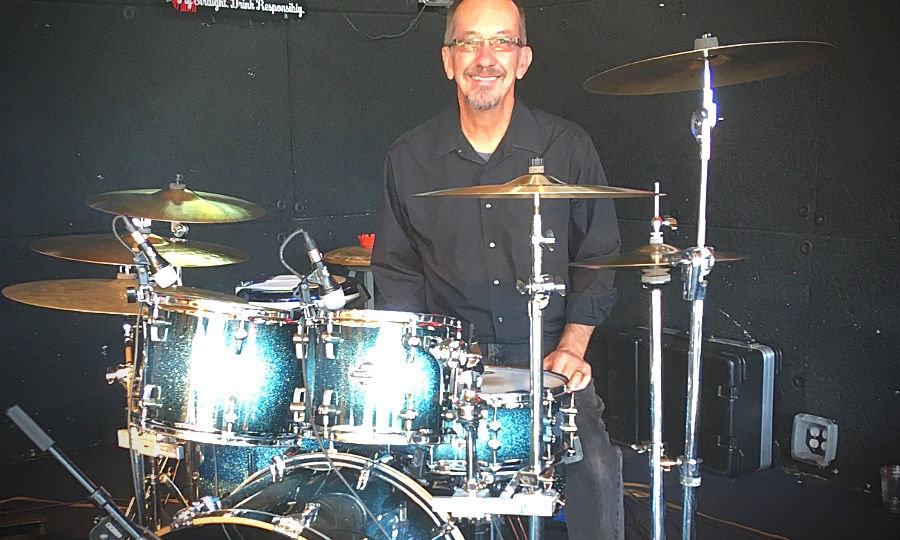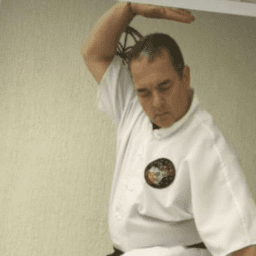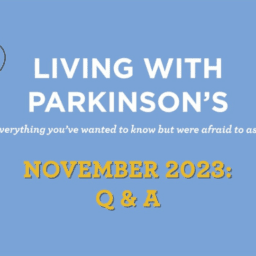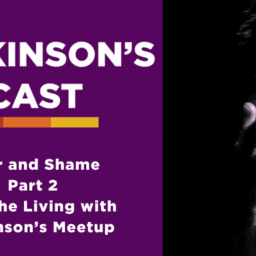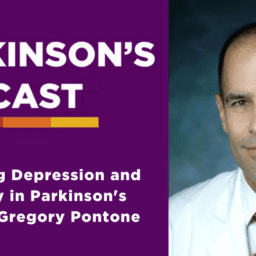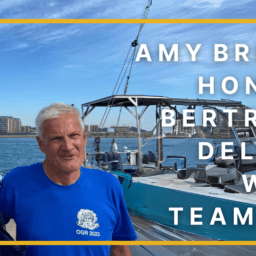Each month, we spotlight people in our community who have inspiring stories to tell. Today, we are happy to feature Tom Dudzinski from Denver, CO.
WHAT HAS YOUR JOURNEY BEEN LIKE SINCE YOUR PARKINSON’S DIAGNOSIS?
The neurologist moved her finger around to various points in space and asked me to touch it, first with my right hand, then my left. It reminded me of the motions I often make when I play drums. Reaching for my crash cymbal, then my ride cymbal, then my other crash cymbal. She asked me to tap my right foot. I pretended I was playing my bass drum. With my left foot, I was playing the hi-hat. If she would just watch me play drums, she’d see that there’s nothing seriously wrong with me, I thought.
About six months earlier, I’d noticed a slight tremor in my left hand. Almost imperceptible. And very intermittent. I mentioned it to my primary care doctor, and she referred me to a neurologist—just to rule out anything serious.
“You have Parkinson’s,” the neurologist said confidently yet empathetically.
Now, wait a minute! She just went off script! She was supposed to say, “You don’t have Parkinson’s.” She was supposed to give me something to take care of the tremor, and then I could get on with my life.
I sat in silence for a moment, waiting for her to correct herself. She didn’t.
“Parkinson’s”, I repeated softly. Too softly. Apparently speaking softly is just one of many potential symptoms of Parkinson’s. The doctor launched into an explanation of the disease, making her way through a long list of possible symptoms, most of which I hadn’t experienced. A few, though, resonated frightfully with me. Trouble sleeping. Doesn’t everybody have trouble sleeping as they get older? A loss of sense of smell. That was a curious symptom, something I’d started noticing about a year or so ago. Again, I wrote it off to aging. And of course, speaking softly. I just thought that my wife Mary needed hearing aids.
My mind was drifting in and out during her explanation. It all became a blur. Thank God Mary was with me. She reached into her purse, pulled out pen and paper, and started taking notes.
How do you live well each day?
My neurologist emphasized that exercise is the most effective way to slow the progression of Parkinson’s. For the athletically inclined, that would be good news. Not for me. I am singularly unmotivated when it comes to athletic activities. Now, faced with the prospect of my body going to hell in a handbasket, I needed to re-think exercise.
I found an exercise class taught by a physical therapist specializing in movement disorders. She gently encourages us, challenging us to challenge ourselves, explaining why these exercises are important in addressing Parkinson’s issues. I put the class on my calendar as a recurring event.
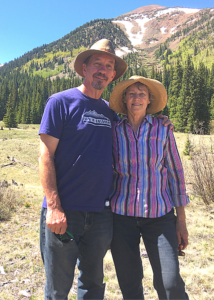 If I were to make a list of all the sports that I was least interested in, boxing would hold a spot near the top of that list. As it turns out, boxing also happens to hold a position close to the top of recommended activities for people with Parkinson’s. When I attended my first boxing class, I was surprised at how much cognitive work was built into the challenging physical workout. The support of the instructors along with the camaraderie of others in the class made for an almost party atmosphere. I added boxing classes to my calendar of “must do” activities. Go figure!
If I were to make a list of all the sports that I was least interested in, boxing would hold a spot near the top of that list. As it turns out, boxing also happens to hold a position close to the top of recommended activities for people with Parkinson’s. When I attended my first boxing class, I was surprised at how much cognitive work was built into the challenging physical workout. The support of the instructors along with the camaraderie of others in the class made for an almost party atmosphere. I added boxing classes to my calendar of “must do” activities. Go figure!
Mary also joined me for a course called PD-SELF, a series of eight monthly sessions for newly diagnosed people with Parkinson’s. The focus was on improving one’s self-efficacy, which is a person’s belief in their ability to succeed in a particular situation … such as Parkinson’s. A side benefit that came from PD-SELF was meeting with two other couples who were also taking the course. After classes ended, we continue getting together socially, comparing notes on our individual Parkinson’s journeys. But mostly we talk about our families, travels, and other areas of interest. While we share the bond of Parkinson’s, we also share the deep commitment that we all made with ourselves: to live life to the fullest … Parkinson’s be damned.
What do you wish you would have known when you were diagnosed that you know now about living with Parkinson’s?
When I was first diagnosed, I was not aware of the extent to which Parkinson’s would become a part of my life. I didn’t fully appreciate that the course of its progression would largely depend on my active participation in managing it. I needed to come to grips with the reality that I had a new presence in my life, and that I needed to establish a relationship with that presence. Two years after my diagnosis, I am still relatively early on in my Parkinson’s journey. But I know I still have a long way to go, and that Parkinson’s will be a permanent presence in my life.
What do you wish for everyone living with Parkinson’s?
As with any relationship, I know that living with Parkinson’s will evolve and change over time. Even though the impact of Parkinson’s has been relatively minimal for me so far, I realize that I need to be an active participant in that relationship, not a passive observer. It has undeniably become a part of who I am. But I am committed to not letting Parkinson’s define who I am. I am learning that the time I spend in this relationship does not have to be onerous. After all, if I can actually look forward to my exercise classes, anything is possible!
SHARE YOUR VICTORY
Each month, we spotlight people from our Parkinson’s community who embody living well today – what we call Moments of Victory®. Your story, like Tom’s, could be featured on our blog and Facebook page so others can learn from your experiences and victories.


